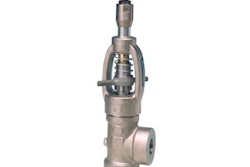SHANGHAI (AP) — American businesses are finding their prospects in China clouded by surging costs, intense competition and regulatory interference, despite the country's crucial importance for their survival, according to a report released Wednesday.
The report coincides with an official visit to the U.S. by Chinese Vice President Xi Jinping, who has said he hopes to promote cooperation in a relationship dogged by friction over currency policy and other issues.
Nearly 80 percent of companies participating in the annual report by the American Chamber of Commerce in Shanghai say their China business is profitable, but fewer companies reported rising revenues or profit margins.
"Although U.S. companies are generally optimistic about the future, they feel less bullish about their business prospects going forward than in the previous year," it said.
The lower readings "call attention to the degree to which U.S. companies contend with intensifying business and regulatory challenges in the Chinese market," the report said.
Member companies cited surging costs, difficulties in hiring and keeping qualified staff and persistent regulatory obstacles as the most common constraints. Nine out of 10 said they believed China was losing its cost advantage over other low-cost countries.
Increasingly, companies producing inexpensive, low-tech items have shifted production to other developing countries or in some cases have shifted factories to inland areas of China to help cut costs and be closer to local markets.
Corruption and fraud are a concern for many businesses, with extortion, kickbacks to customers and officials, and fraud by employees, mentioned as top issues. Companies also saw little improvement over recent years in protection of trademarks, patents and other intellectual property.
That shift is bringing on new challenges as foreign companies deal with Chinese businesses in regions less familiar with international business practices and rules, said Kent Kedl, regional managing director for the consultancy Control Risks.
"Fraud and corruption are a big problem," he said.
A growing number of businesses, nearly three-quarters, also cited bureaucracy and a lack of clarity over industry regulations as increasingly difficult challenges.
For a retailer like Gap, Inc., the slew of different regulations in different cities is daunting, said Jeff Kirwan, the company's managing director for China.
"It's a lot easier to adapt to one set of rules than to 50," he noted.
Despite the less upbeat tone to this year's report, China remains a bright spot compared with other crisis-stricken regions. Companies say their revenue growth in China is still higher than global sales growth and about three-quarters are increasing investment to help better reach the increasingly affluent local market.
Growth in China is also helping increase U.S. exports, the report said, with almost two-thirds of the companies surveyed saying they import parts or finished goods from the U.S.
Such sales account for almost a third of the companies' sales by value, and have been rising as U.S. exports to China have risen to all-time highs. According to U.S. data, in the first three quarters of 2011, U.S. companies exported $75.8 billion in goods, to China, up 17 percent over the same period in 2010.
Although automakers have begun using factories in China to produce for export to other markets, for many other industries increasingly the focus is on the Chinese market, where demand has remained resilient.
"A maturing China market is forcing companies to target their product development for China," the report said.






















